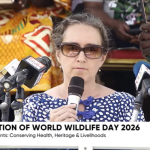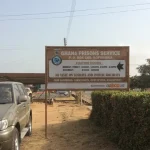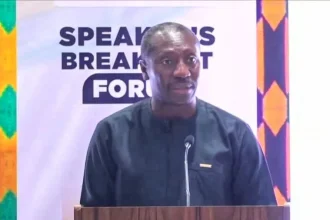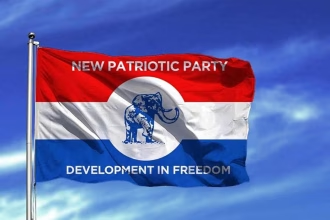Officials from the International Monetary Fund (IMF) have assured the government of its commitment to help address the economic challenges faced by Ghana.
Ghana has turned to the IMF for support after the economy took a nosedive, attributed to COVID-19 and the Russia-Ukraine conflict.
A statement from the team led by Mission Chief, Carlo Sdralevich, said they are looking forward to fruitful engagements with the authorities in Accra.
“On the basis of a request from the Ghanaian authorities, an IMF staff team will, in the coming days’ kick-start discussions on a possible programme to support Ghana’s homegrown economic policies. We are at an early stage in the process, given that detailed discussions are yet to take place.
“The IMF stands ready to assist Ghana to restore macroeconomic stability, safeguard debt sustainability, promote inclusive and sustainable growth, and address the impact of the war in Ukraine and the lingering pandemic,” the release explained.
The discussions are scheduled for 6 July 2022 to 13 July 2022.
On the Ghana side, President Nana Addo Dankwa Akufo-Addo is expected to lead a task force of economists, ministers and advisors. At the same time, the Ministry of Finance will put together a team of economists, finance and social technocrats for the discussions.
This was disclosed by Information Minister Kojo Oppong Nkrumah in a series of television interviews ahead of the team’s arrival.
He said the government hopes to secure about US$2 billion from IMF to shore up the country’s reserves and build buffers to mitigate the hardships in the country.
Meanwhile, there is a lot of uneasiness from various sectors following the announcement of engagements with the IMF.
UTAG, for instance, has vowed not to accept any IMF conditionality that will negatively affect their existing agreements with the government.
The association, in a statement, said the government must ensure that the conditions set will not disadvantage the conditions of service of labour unions, including UTAG.
Also, the Trades Union Congress (TUC) described the government’s decision to seek help from the IMF as a “tragic mistake” and a “sad decision”.
In a statement, the labour union said while it appreciated the challenges facing the economy, it does not believe that going under an IMF programme was the best solution.
“It is now very obvious that the economy of Ghana is in a desperate situation. But we are of the firm view that handing over the management of the economy to the IMF is not the solution to our problems,” the TUC said.
TUC was of the view that an IMF programme will bring in economic conditions, such as a freeze on public sector employment, as was the case for Ghana’s 16th programme, noting that despite the many bailouts, the Ghanaian economy continues to face challenges.
“The hardships all these IMF programmes brought on Ghanaians were enormous and needless. What we got in return was an economy still overly dependent on the production and export of raw materials and import of manufactured products. Most of our productive sectors such as mining, petroleum and telecommunications are still being controlled by foreign companies,” it added.
















